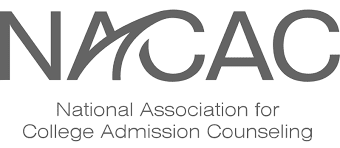Starting college means a lot of life changes and new responsibilities, including caring for yourself in ways you may not have before. As you are figuring out classes, new friends, activities, and events, and settling into your school in general, it is easy for things like self-care to be forgotten. For LGBTQIA+ students in particular, having good ongoing practices can play an important part in staying healthy and being able to do all the things you are looking forward to. It is important to create a routine that works for your personal needs and keep in mind that something being a general self-care tip or recommendation does not mean it will be helpful or productive for you.
It is common for new college students to realize in hindsight that in the hustle of a new year, they weren’t making sure they were doing the basics to care for their bodies. Things like eating enough, drinking water, showering regularly, and brushing your teeth are easy to lose track of when you have more fun things on your mind. While these are very general needs, finding solutions to making sure you do them will need to be specific to what works for you. Think about what usually works best for you when trying to remember and stick to everyday tasks. Will it help to set alarms or reminders on your phone? To make a daily checklist? To have specific times or a specific order in which you do these things every day (like a set morning routine)? Starting off with a plan and habits in place is the best way to keep on top of your physical well-being.
Mental wellness is just as important as physical wellness, and good ongoing self-care around your mental health can make a huge difference in how you feel overall. College will mean a lot of new social opportunities you may not want to miss out on, but you will have plenty of opportunities and time over the next few years to be with friends and do college events and activities. Checking in with yourself regularly so you are aware of when you are getting stressed or overwhelmed and need to step back and give yourself time to relax and recharge is an important part of caring for your emotional well-being. Set time into your days and weeks to reflect and unwind, and make sure you have someone either at school or that you can call/message that you can go to if you are struggling and need support.
Many adults struggle with balancing their time between responsibilities and things they enjoy doing. Making sure you are putting enough time into both responsibilities like school work and self-care and things you enjoy like hanging out with friends and hobbies can be hard, but it is an important part of setting yourself up for success in college and as you enter adulthood. A big part of this will take the form of setting boundaries of various kinds. You are allowed to say no to hanging out with friends, decide not to do an extra credit project, skip a day of your normal exercise routine, or do anything else you need to keep yourself well. Setting both external boundaries in relationships with partners or friends and internal boundaries about what you demand of yourself can be an ongoing struggle, but when you give yourself permission to set healthy boundaries you will see how much they positively impact your life.
Just like types of self-care that apply to most people still require solutions that work for the specific person doing them, there are also self-care needs that only apply to certain people or groups. Among other factors that may apply to you and an individual, LGBTQIA+ people often have different needs and options than their cishet peers for self-care. Think about what your specific needs may be and how you can accommodate them.
An important part of self-care, especially for LGBTQIA+ people, is knowing you have a safe space or community where you can talk with people who understand your experiences. There are a variety of ways you can find community groups and spaces. To start you can reach out to your school’s diversity office about clubs and spaces for LGBTQIA+ students on campus. Going to a local pride center is a great way to learn about resources and support groups near you, and Centerlink’s pride center directory at www.lgbtqcenters.org/LGBTCenters lets you search by location to see what is near your school. If you want to find an online community or virtual groups and need a place to start, The Human Rights Campaign has a list of online and phone resources for LGBTQIA+ youth at https://www.hrc.org/resources/direct-online-and-phone-support-services-for-lgbtq-youth. Take the time to think about what will be the most helpful for you and be proactive about setting up a support system that will make you feel safe, respected, and understood.
If you are pursuing any new aspect of transition including starting Hormone Replacement Therapy (HRT), you need to make sure you are taking steps to stay healthy as you do. Talk to your doctor about what you should be doing day to day to care for your body and anything you should be looking out for that could be a sign of a problem. If you bind your chest (regardless of if you do so frequently or occasionally) make sure you are using a safe binder and not sleeping with it on or leaving it on longer than is safe. It may feel hard to limit how much you do something that is helping you with dysphoria, but an injury from unsafe use can mean you have to stop binding for anywhere from days to months and even permanently. Point of Pride has a binding 101 article at https://www.pointofpride.org/blog/binding-101-tips-to-bind-your-chest-safely that can be a good place to start, but it is also essential to make sure you have a doctor you can talk to about safe practices and what to do if you encounter issues regarding binding.
When considering self-care activities remember to keep your comfort and safety in mind. Regardless of if you are looking to start working out, treat yourself to a nice lunch, participate in a poetry reading, or anything else it is important that you feel physically and emotionally safe. That may mean trying different activities to find ones that feel affirming, finding spaces to do those activities where you feel respected, or finding people who you can do them with who make you feel supported and respected. If someone does or says something that makes you uncomfortable or unwelcome you never have to ignore that because it is not overt bigotry or a physical danger. Your emotional safety is important, especially when doing something as part of self-care, and assumptions about your gender or sexuality, insensitive comments, stares, or other behaviors that make you feel uncomfortable are all enough of a reason to rethink if a situation is a good fit for you.
College should be a time when you can focus on learning and growing, and a good self-care routine can make sure that can happen. Prioritizing your well-being will set you on the right course to thrive and enjoy the exciting transformation from being an awesome LGBTQIA+ kid to an awesome LGBTQIA+ adult.
–
Each month I am sharing information and advice for a different aspect of college life for LGBTQIA+ students! Next month I will be focusing on potential roommate issues and how to best deal with them.








